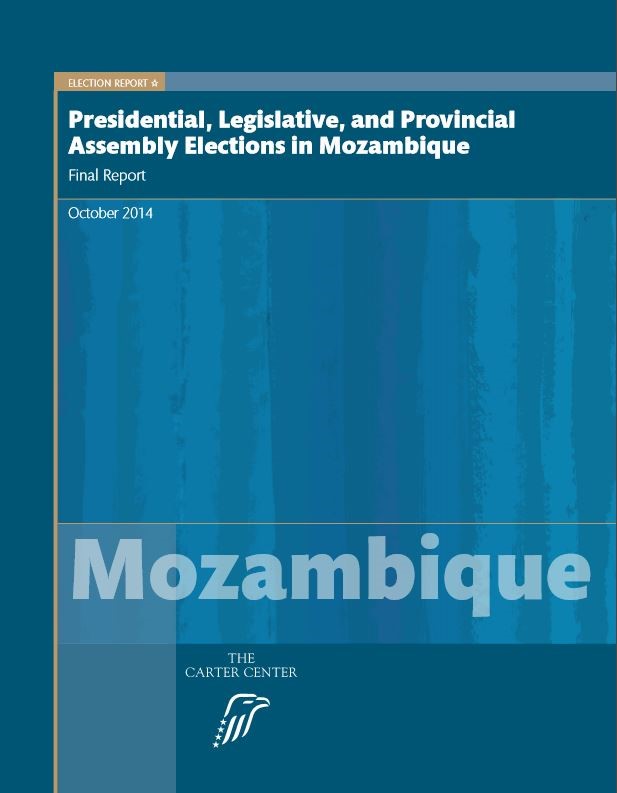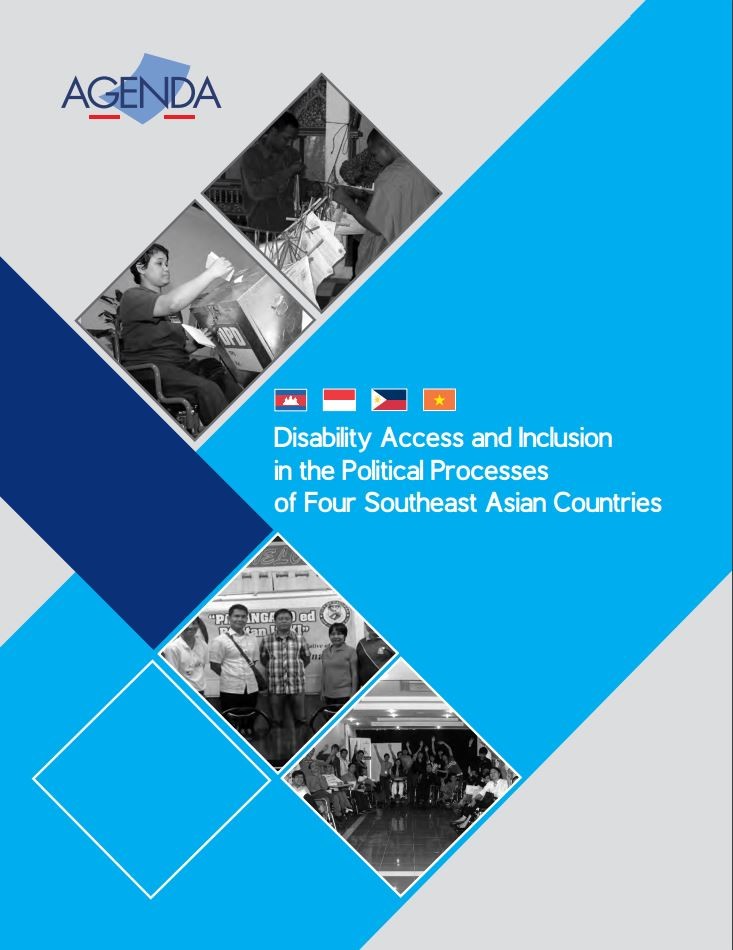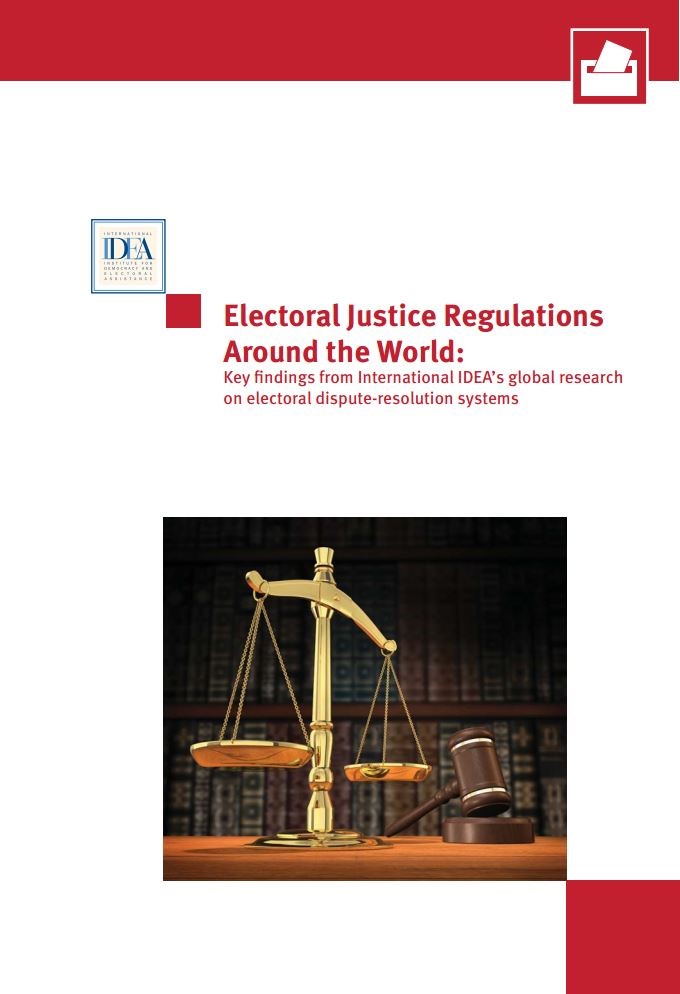Newsletter August 2016

|

Dear Reader, International IDEA, one of our ACE partners, contributed the feature article for this edition of the Newsletter focusing on democratic accountability and the Sustainable Development Goals (SDGs), which recently replaced the Millennium Development Goals as the foundation of the global agenda to improve livelihoods in a range of sectors by 2030. The August 2016 edition of the ACE Newsletter highlights:
Additionally, be sure to check out the U.S. Election Program (USEP), hosted by the International Foundation for Electoral Systems (IFES), an ACE Partner, on November 6-9, 2016. The Seventh Global Elections Organization Conference (GEO) will be held in the same location directly after USEP, on November 9-10, 2016
The ACE Electoral Knowledge Network promotes credible and transparent electoral processes with an emphasis on sustainability, professionalism, and trust in the electoral process. ACE offers a wide range of services related to electoral knowledge, assistance, and capacity development.
Thank you for reading August's newsletter and for your involvement with ACE. We look forward to your contributions to the Network! Best regards, The ACE Electoral Knowledge Network
Feature: Democratic accountability in service delivery – lessons from AfricaInternational IDEA
Background Since the adoption of the 2030 Agenda for Sustainable Development in September 2015, development experts, statisticians and various organizations have discussed the implementation, follow-up and review mechanisms for monitoring progress on the implementation of the 17 Sustainable Development Goals (SDGs). In order for the SDG monitoring process to be accountable, it is essential that the SDG indicators include peoples’ own assessments of the availability, accessibility and quality of services provided. In particular, the intention expressed by the UN’s MY World survey (UN 2016), and by SDG 16—namely, to foster peaceful and just societies and inclusive and accountable institutions—makes it crucial to include people’s voices in monitoring progress towards the goal. To this end, SDG 16 should, where feasible, include survey-based evidence, which tends to be the best way to represent people’s lived experiences and assessments. This Policy Brief argues that accountability to citizens, and in particular accountability through democratic political processes, is a crucial enabler of the SDGs. Further, democratic accountability can help make the SDG monitoring framework truly people-centred; this is particularly evident with, but not limited to, SDG 16. Accountability and the 2030 Agenda for Sustainable Development Accountability can be defined as an obligation to account for one’s activities, accept responsibility for them and disclose and justify results. Accountability is a fundamental cross-cutting dimension of the SDG framework. The most explicit reference to accountability at the goal level is grounded in the language on the quality of institutions in SDG 16, which commits UN member states to ‘promote peaceful and inclusive societies for sustainable development, provide access to justice for all and build effective, accountable and inclusive institutions at all levels’ (UN Department of Economic and Social Affairs 2015). Thus, government accountability in their responsibilities as service providers (or regulators of service provision) is a crucial element of the SDGs. Accountability features at the target level, as in target 16.6: ‘Develop effective, accountable and transparent institutions at all levels.’ Accountability also features in paragraph 45 on national parliaments, in paragraph 47 on the primary responsibility of governments, and in paragraph 73 on accountability to citizens. Accountability is also present in the cluster on ‘Data for monitoring and accountability’ in SDG 17, in SDG 5 on gender equality, and in SDG 10 on reducing inequality within and among countries. What is democratic accountability? Democratic accountability refers to the many ways in which people, political parties, parliaments, media, civil society and other actors provide feedback to, reward or sanction officials in charge of setting and enacting public policy (International IDEA 2014). It is therefore a crucial enabler of human rights and provides the necessary monitoring framework for their meaningful implementation. There can be no sustainable development without respect for democracy and human rights. How can democratic accountability make a difference? It is people-centred and participatory In The Road to Dignity by 2030, the UN Secretary-General noted that ‘effective governance for sustainable development demands that public institutions in all countries and at all levels are inclusive, participatory and accountable to the people’ (UN General Assembly 2014). In International IDEA’s view, free and fair electoral processes; democratic political parties; popularly elected parliaments with legislative, oversight, budgetary, representative and conflict management functions; ombudsman offices; and supreme audit institutions all contribute to comprehensive representation and human rights. Social movements and interest groups provide further opportunities for people to participate in and influence the democratic process. The media also provides information and an arena for public debate, and acts as a watchdog. The African Charter on Peace and Democracy, Elections and Governance confirms AU member states’ commitment to ensuring ‘Effective participation of citizens in democratic and development processes and in governance of public affairs’ (AU 2007: article 3.7). In South Africa, for example, the eThekwini municipality worked to improve water and sanitation services by conducting focus groups and citizen interviews. Based on feedback from citizens, the municipality increased free basic water from six to nine kilolitres (World Bank 2011). It can protect minorities and disadvantaged groups Democratic accountability can facilitate the human right of all to public service on equal terms. Its mechanisms translate human rights commitments and equality goals into action through governance reform that provides public institutions with the incentives and skills to respond to the needs of disadvantaged groups. Article 19 of the African Charter on Human and Peoples’ Rights affirms this, stating that individuals ‘shall enjoy the same respect and shall have the same rights’ (Organization of African Unity 1981). It builds openness and transparency Democratic accountability entails the public’s right to obtain information on the organization, functioning and decision-making processes of public administration. Greater transparency in government budgets, procurement and spending improves oversight, policy choices and service delivery. However, transparency is meaningless without the right to information and an independent and active media. Democratic accountability bolsters the right to seek, receive and impart information and ideas of all kinds. Article 2.5 of the Convention on Preventing and Combating Corruption emphasizes the need to ‘foster transparency and accountability in the management of public affairs’ (AU 2003). One example of openness and transparency is the Strategy for the Harmonization of Statistics in Africa (SHaSA), which was adopted by several African countries to generate data on governance, peace and security. In July 2014 Cabo Verde became the first country in Africa to publish these statistics. The inclusive and participatory nature of these survey based statistics demonstrates the responsiveness of governments to their people’s voices (UNDP 2014). It includes answerability Answerability measures the extent to which a government carries out its duty to explain and justify its decisions, and is linked to how claims holders articulate their demands, but also to officials’ capacity and willingness to take responsibility for their actions. In this context, democratic accountability can contribute to the promotion of people’s right to participate in public affairs while providing the free flow of information necessary for governments to be held accountable by their citizens. African regional jurisprudence provides firm legal grounds for the ‘establishment of the necessary conditions to foster citizen participation, transparency, access to information, freedom of the press and accountability in the management of public affairs’ (AU 2007: article 2.10). It includes responsiveness This principle is about whether public officials consult with and listen to citizens or their representatives before a policy or law is approved, so that decision-making reflects their views and demands for human rights. Article 21.4 of the African Charter on Values and Principles of Public Service and Administration commits governments to ‘put in place mechanisms for civil society participation and consultation in the management of public service provision’ (AU 2011). Democratic accountability mechanisms can help ensure people’s right to participate in public affairs and exert influence over the policymaking process while fostering the implementation of principles such as the rule of law, equal access to justice, the proper management of public affairs and property, judicial integrity and transparency. It guarantees enforceability This principle refers to the formal or informal consequences that duty bearers—government officials being held accountable—might face, as well as their impact. Research by International IDEA suggests that almost all countries with low scores on service delivery have either limited or no provision for effective sanctions, and no credible incentives for politicians to be responsive. Mechanisms for democratic accountability can provide sufficient incentives and sanctions to encourage governments, elected representatives, and public officials and employees to work in the best interests of the people. Conclusion In order for the SDG monitoring process to safeguard people-centred accountability, it is essential that the SDG indicators build on peoples’ own assessments of the availability, accessibility and quality of services provided. Survey-based indicators have the advantage of incorporating people’s lived experiences into the monitoring of the SDG targets over time to complement administratively-based indicators. Indeed, the follow-up process on the SDGs should be as inclusive and people-centred as possible to mirror popular understanding of the SDGs, including the critical importance of ‘honest and responsive governments’. Hence, democratic accountability can provide the necessary framework for inclusive realization, follow-up and review of the SDGs by protecting minorities and disadvantaged groups, and building openness and transparency, answerability, responsiveness and enforceability. This article has been condensed for this newsletter by ACE. A full version of the article, including references, can be found here. Practitioners' Network Updates
Consolidated replies are published summaries of the discussions on the Practitioners' Network. The following are some of the consolidated replies published since May, including Peer-to-Peer Capacity Building, Electoral participation of domestic migrants, and Online candidate nomination. Dozens of questions have been consolidated, so be sure to look here for a full overview. Recent Consolidated Replies
ACE Encyclopaedia: The Latest UpdatesACE recently completed uploading approximatly 90 election observation reports from members of the Declaration of Principles for International Election Observation community. Reports can be accessed through the Election Observation Portal on ACE. If you would like to see a particular topic addressed in an ACE Focus On or translated into Spanish or French, please send your suggestions to [email protected]. Recent Publications by ACE Partners and Members of the Practitioners' NetworkAt the invitation of the Ministry of Foreign Affairs and Cooperation, The Carter Center and the Electoral Institute for Sustainable Democracy in Africa (EISA) partnered to deploy a team of 87 observers representing 40 countries to observe Mozambique’s Oct. 15, 2014, presidential, National Assembly, and provincial elections. The EISA/Carter Center mission was conducted using common assessment forms and an integrated deployment that permitted broader coverage while allowing both organizations to retain institutional autonomy. This report is the Carter Center’s final mission report on the EISA/Carter Center partnered mission. On election day, the team, led by former Prime Minister of Kenya Raila Odinga and co-led by EISA Executive Director Denis Kadima and Carter Center Vice President of Peace Programs John Stremlau, visited 543 polling stations in 82 of 151 districts. EISA’s final report can be viewed here. In early 2016, the General Election Network for Disability Access (AGENDA) published Disability Access and Inclusion in the Political Processes of Four Southeast Asian Countries, a report compiling four research studies analyzing the political participation of persons with disabilities in Cambodia, Indonesia, the Philippines and Vietnam. The studies were conducted by local disability rights organizations with the support of the International Foundation for Electoral Systems (IFES) and the Australian Department of Foreign Affairs and Trade (DFAT). Southeast Asia’s role as a disability rights leader is evident in electoral processes. Examples included the Philippines’ work to increase voter registration accessibility and Cambodia’s initiative to hire persons with disabilities in the National Election Committee (NEC). However, the report also identified areas for improvement, such as implementing existing legal frameworks for inclusion. For example, mandated trainings for local poll workers are inconsistently delivered, which results in an uneven application of disability rights policies. Electoral Justice Regulations Around the World (International IDEA) The way in which complaints and disputes about such misconduct are handled is one of the important indicators of the credibility of elections. Therefore, free and fair elections necessitate the adoption of efficient and transparent electoral dispute-resolution (EDR) mechanisms that are explicitly defined in legislation. This report provides an overview of the global data on EDR systems contained within the International IDEA Electoral Justice Database and presents key findings from the study of election dispute resolution (EDR) mechanisms. It also presents a brief discussion of these findings, highlighting important trends and practices from a global perspective. |

|




